Introduction

Two major forms of viral hepatitis affect the liver: hepatitis B and hepatitis C. They differ in terms of health hazards, symptoms, and modes of transmission even if they share certain characteristics. This blog aims to provide you with easy-to-read information regarding hepatitis B and C.
What Is Hepatitis?

Hepatitis refers to inflammation of the liver. While there are other varieties, including hepatitis A, B, C, D, and E, hepatitis B and C are the most serious because of their long-term effects on health. If left untreated, these viral infections can cause significant liver damage such as cirrhosis (liver scarring), liver failure, and even liver cancer.
What Is Hepatitis B?

Hepatitis B is a virus that attacks the liver and is one of the most frequent types of hepatitis. It can be acute (short-term) or chronic (long-term), depending on the immune system’s reaction to the virus.
Transmission of Hepatitis B

Hepatitis B is primarily spread through contact with infected bodily fluids. Common methods of transmission include:
- Blood-to-blood contact: Sharing needles or syringes, or through transfusions with contaminated blood.
- Sexual transmission: Having unprotected sex with an infected person.
- Mother-to-child: An infected mother can pass the virus to her newborn during childbirth.
Symptoms of Hepatitis B
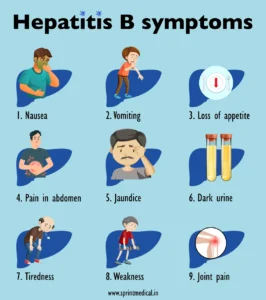
Hepatitis B symptoms can vary. Some people don’t show any symptoms, while others may experience mild to severe symptoms. These symptoms usually appear within 1 to 4 months after exposure:
- Fatigue
- Loss of appetite
- Fever
- Nausea or vomiting
- Jaundice (yellowing of the skin and eyes)
- Dark urine
- Pain in the upper right abdomen (where the liver is located)
Chronic Hepatitis B
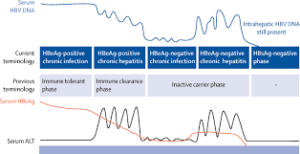
If your immune system does not eliminate the virus, hepatitis B might become chronic. Chronic hepatitis B can result in long-term liver damage, including cirrhosis and liver cancer. People with chronic hepatitis B frequently do not exhibit symptoms until severe liver damage develops, making it critical to get tested if you suspect you have been exposed.
What Is Hepatitis C?

Hepatitis C, like hepatitis B, is a viral infection affecting the liver. However, it is typically more harmful because the symptoms are more subtle and difficult to diagnose.
Transmission of Hepatitis C
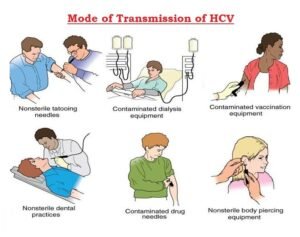
Hepatitis C is primarily transmitted through blood-to-blood contact. Unlike hepatitis B, hepatitis C is rarely transmitted sexually or from mother to child. The most common methods of transmission are:
- Sharing needles or other drug-injection equipment: This is the most common way hepatitis C is spread.
- Blood transfusions or organ transplants: While screening procedures have reduced this risk, it was once a major method of transmission before 1992.
Symptoms of Hepatitis C

Most people with hepatitis C do not show symptoms for years, which is why it’s often called a “silent” infection. If symptoms do appear, they may include:
- Fatigue
- Joint pain
- Jaundice
- Abdominal pain
- Dark urine
- Nausea or vomiting
- Loss of appetite
Since many people with hepatitis C don’t show symptoms, it’s important to get tested if you’ve engaged in high-risk activities, such as sharing needles.
Chronic Hepatitis C
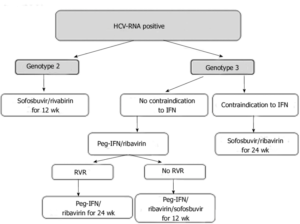
Like hepatitis B, hepatitis C can develop into a chronic infection if treatment is not received. With time, chronic hepatitis C can cause major liver issues such as cirrhosis, liver failure, or liver cancer. But unlike hepatitis B, if caught early enough, hepatitis C is frequently curable with antiviral drugs.
The Differences Between Hepatitis B and C

While both hepatitis B and C affect the liver and have some similar symptoms, they differ in several key ways:
- Transmission: Hepatitis B is spread through contact with bodily fluids (blood, semen), while hepatitis C is primarily spread through blood-to-blood contact.
- Vaccine availability: There is a vaccine for hepatitis B, but no vaccine for hepatitis C.
- Chronicity: Chronic hepatitis B can often be managed with lifelong antiviral medication, whereas hepatitis C can usually be cured with specific treatment plans.
Diagnosis of Hepatitis B and C

Getting tested for hepatitis B and C is crucial, especially if you’ve been exposed to risk factors such as unsafe injections or unprotected sex with an infected partner. Diagnosis involves simple blood tests that detect the virus in your bloodstream.
- For Hepatitis B, tests can detect the virus itself or antibodies created by your immune system to fight the infection.
- For Hepatitis C, testing is done to detect the virus in the blood, and further tests may be required to determine the level of liver damage.
Treatment Options for Hepatitis B and C
Hepatitis B Treatment

Although there is no cure for hepatitis B, antiviral medicines can help manage the condition. If you have acute hepatitis B, your body may be able to eradicate the infection on its own, eliminating the need for therapy. In chronic situations, drugs like Tenofovir or Entecavir can help prevent the virus from developing additional liver damage.
Hepatitis C Treatment

The good news for hepatitis C patients is that it can usually be cured. Antiviral drugs known as direct-acting antivirals (DAAs) are commonly used in treatment because they are extremely effective at removing the virus from your system. Treatment plans typically run between 8 and 12 weeks, with cure rates surpassing 90%.
Prevention of Hepatitis B and C
Hepatitis B Prevention
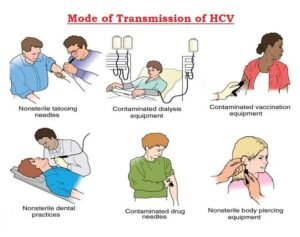
A vaccine can help prevent hepatitis B. Infants, children, and adults should be vaccinated, especially if they are at higher risk (healthcare professionals, individuals with several sexual partners). Additionally, avoiding sharing needles and engaging in safe sex can lower your risk.
Hepatitis C Prevention
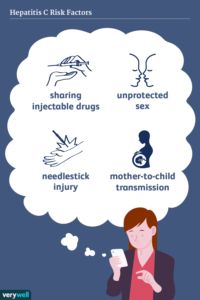
There is currently no vaccine for hepatitis C, but you can lower your risk by avoiding actions that may expose you to blood. This includes not passing needles, razors, or toothbrushes to others. When dealing with needles or blood, healthcare staff should always take the right measures.
Conclusion
Both hepatitis B and C are dangerous liver infections that require medical attention; however, with early detection and adequate treatment, the risk of severe consequences can be considerably decreased. Regular testing, particularly if you are in a high-risk category, combined with hepatitis B immunization, can help protect you from these potentially fatal infections. Even if you have hepatitis, you can live a healthy life by taking preventive steps and obtaining timely treatment.
CLICK HERE FOR MORE INFORMATION
FAQs
Can hepatitis B or C go away on its own?
Hepatitis B can sometimes clear on its own, but hepatitis C usually requires antiviral treatment to be cured.
How do I know if I have hepatitis B or C?
You need a blood test to determine if you are infected with either virus.
Is there a vaccine for hepatitis C?
No, there is currently no vaccine for hepatitis C, but there is a highly effective cure.
Can hepatitis B and C be treated?
Yes, while hepatitis B is managed with antiviral medications, hepatitis C can often be cured with DAAs.
What are the long-term risks of untreated hepatitis B or C?
Both can lead to liver cirrhosis, liver failure, or liver cancer if left untreated.